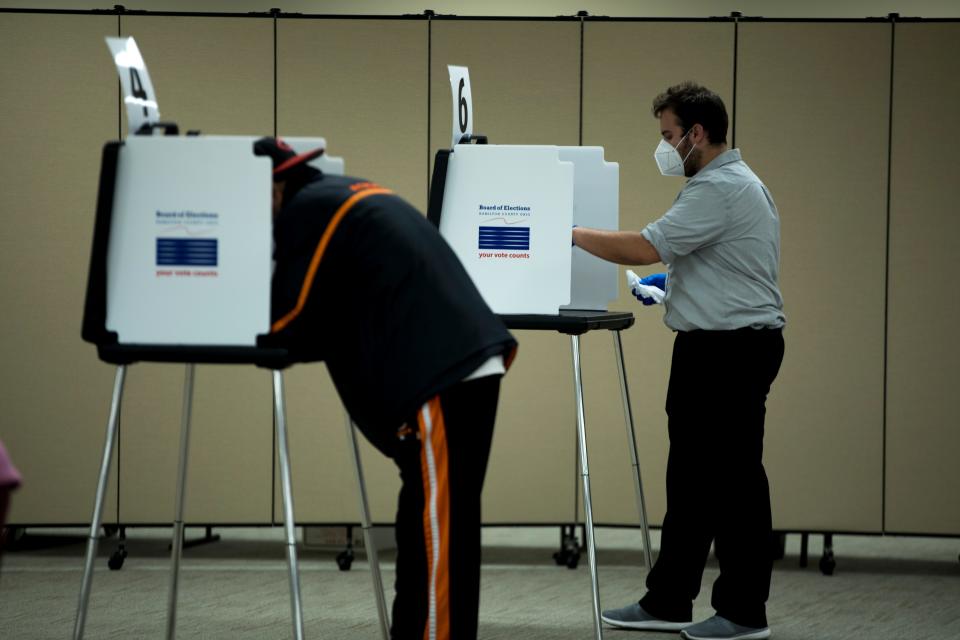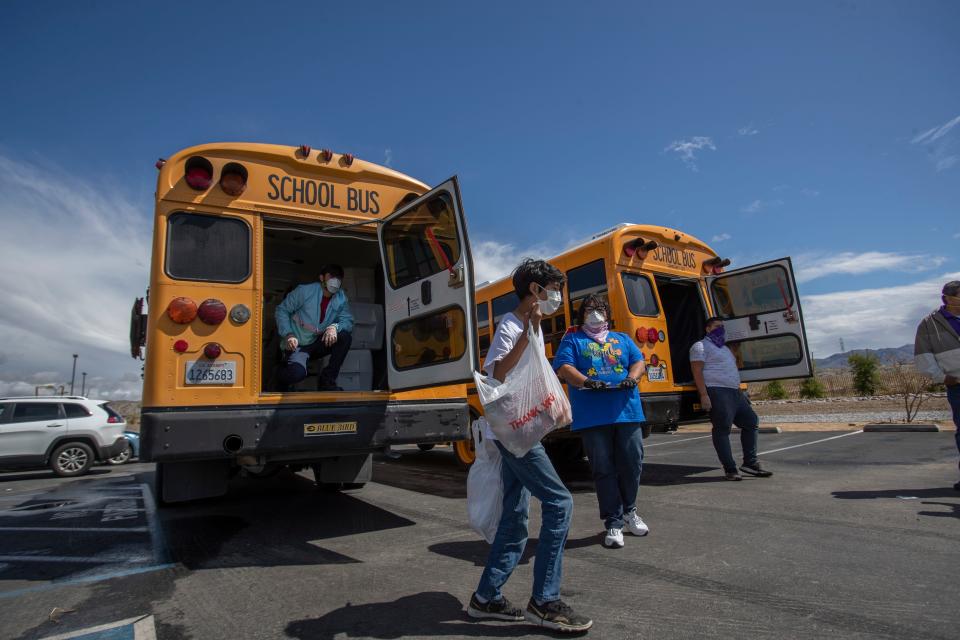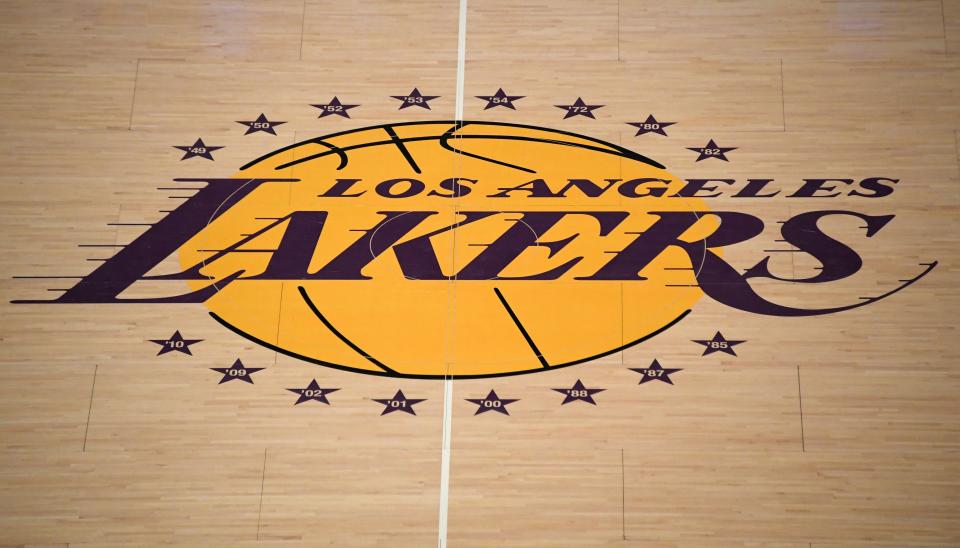In CA: Newsom sets plan for reopening and Lakers return relief funds
As the nation prepares for the prospect of predominantly vote-by-mail elections, politicians have pivoted their official duties and campaigns to the web. But, for the time being, some are having trouble with their pets and the mute feature. Plus, after both faced pushback, the Los Angeles Lakers returned government-provided relief funds while the University of Southern California did not.
I'm Sam Metz, a politics reporter with The Desert Sun in Palm Springs, and I'm filling in for Arlene Martinez. Today, I've got the news you need to know from around the Golden State, so keep scrolling for more on the upcoming special election, politicians throwing their cats and the Los Angeles Lakers accepting, then returning, federal relief dollars for small businesses.
But first: Gov. Gavin Newsom offered a possible timeline for a key point in his plan to reopen California and lift the statewide stay-at-home order that has kept students, workers and tourists cooped up since mid-March. Newsom said students could return to their schools during their normal summer to compensate for lost classroom time.
In his daily press conferences about the coronavirus, Newsom's repeated use of the phrase "meet the moment" has become a trademark for the first-term Democrat, but as far as reopening goes, he doesn't know exactly when that moment will be.
For students, he said, a return could take place as soon as July. That's the closest he's gotten to providing a concrete timetable for reopening schools or businesses, despite demands from local officials.
Rather, Newsom has laid out a roadmap for a return to the quaintness of pre-pandemic life in stages (ah, the days). Once California health officials and epidemiologists have widespread testing capability available and are confident the growth in number of cases has slowed, Newsom will modify the stay-at-home order to allow low-risk businesses and public spaces to reopen.
But even then, gyms, churches, nail salons, bars and sporting events will have to wait until stages 3 and 4. Check out the governor's PowerPoint presentation here.
“Politics will not drive our decision-making. Protests won’t drive our decision-making. Political pressure will not drive our decision-making,” Newsom said.
Stay safe and informed with news and resources from across the USA TODAY Network and beyond: Sign up for In California today (it's free!). And while you're at it, why not also sign up for our weekly Climate Point newsletter that digs into everything climate, energy and the environment (also free!).
Mail voting and meows

Two special elections will offer a sneak preview of November 2020. Like it has done to almost everything else, the coronavirus pandemic has upended the 2020 election cycle. It's changed the nature of both campaigning and voting and denied typical horse race coverage of polling, policy platforms and political strategy the oxygen it thrives on. But the show has gone on.
On May 12, voters in Ventura, Los Angeles and Riverside counties will cast ballots in two special elections and decide who will replace U.S. Rep. Katie Hill, D-Agua Dulce, in California's 25th Congressional District, and State Sen. Jeff Stone, R-La Quinta, in California's 28th State Senate District.
Under the stay-at-home order, candidates haven't been able to spar in traditional debates, but last Friday, Democrat Christy Smith and Republican Mike Garcia faced off in a virtual debate hosted by the Santa Clarita Valley Chamber of Commerce.
Experts say a socially distanced, predominantly vote-by-mail election is uncharted territory, but could shrink the electorate in a way that favors Republican candidates.
Meanwhile, in Sacramento, state lawmakers are preparing for what many see as inevitable: a vote-by-mail November election.
“It’s not a question of ‘if,’" California Voter Foundation President Kim Alexander told CalMatters. “But ‘how.’”
Off the campaign trail, politicians have struggled to adapt to meeting remotely. After falling short in her quest to convince Speaker Nancy Pelosi to allow the U.S. House of Representatives to convene and vote remotely, Rep. Katie Porter, D-Irvine, said most of the remote meetings she's had with fellow lawmakers — a technologically challenged bunch — have focused in one how to work the mute-unmute feature on Zoom.
"'I think you need to unmute yourself’ or ‘Unmute yourself.’ That’s the number one thing that we discuss on these calls," the first-term congresswoman told the San Francisco Chronicle.
One local politician who hasn't had trouble with mute features on Zoom is Vallejo Planning Commissioner Chris Platzer. At a commission meeting held via teleconference, Platzer introduced his meowing cat and, before commenting on a proposal up for discussion, threw his feline friend into the air. Seconds later, his planning commission colleagues heard a thump. Platzer has since resigned.
School's out and, for now, kids are struggling to get meals and connect to internet

Students, however, can't eat their lunches over Zoom For school districts with low-income students who receive free or reduced-priced breakfasts and lunches, keeping kids home presents new challenges about how to distribute meals. In Coachella Valley Unified School District — which covers an area larger than Rhode Island — 94% of students normally receive subsidized meals at school. The district has moved quickly to get a distribution program up and running, but they're still unable to reach about 6,000 students.
Districts are also working to ensure students can connect to the internet to complete their schoolwork. Throughout the next three months, Visalia Unified School District will install antennas at seven of their schools, which they hope will bring WiFi to 91% of district.
Another challenge caused by school closures is that students are out of reach of "mandatory reporters" who disclose incidences of suspected child abuse to the authorities. In Ventura County, the number of calls made to a child abuse and neglect reporting hotline was 7% less in the month of March than it was a year prior.
Lakers ensnared in Paycheck Protection Program anger

More than $2 billion worth of relief provided as part of $659 billion Paycheck Protection Program intended to buoy small businesses has been returned. Among those who've returned relief funds are "small businesses" like the Los Angeles Lakers, who returned about $4.6 million in PPP relief they received after applying for the first round of funds. The University of Southern California, which has a $5.7 billion endowment, defended its decision to accept $20 million in federal COVID-19 relief, arguing it needed the money to continue providing student financial aid.
In California is a roundup of news from across USA TODAY Network newsrooms. Also contributing: Associated Press, ESPN, The (Riverside) Press-Enterprise, CBS Los Angeles, CalMatters, the San Francisco Chronicle and the Vallejo Times-Herald.
This article originally appeared on USA TODAY: In CA: Newsom sets plan for re-opening, Lakers return relief funds

